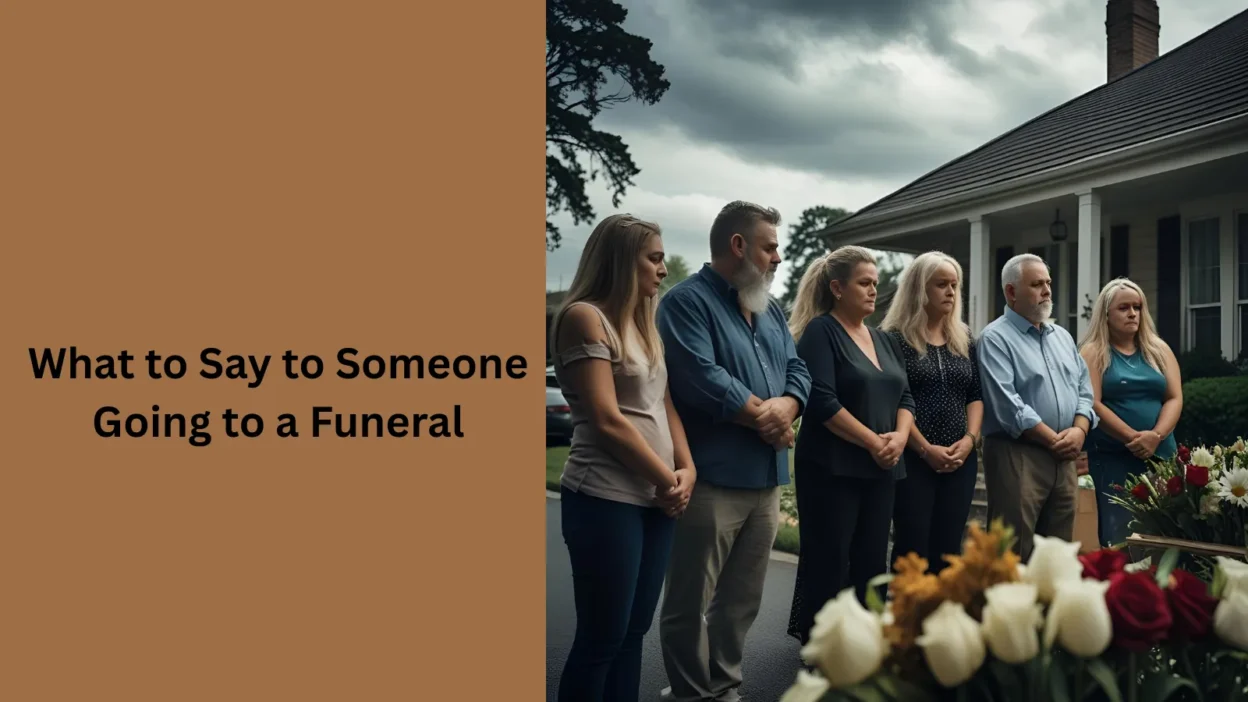When someone we care about is grieving the loss of a loved one, it’s challenging to find the right words to say. We want to express sympathy, offer comfort, and show support, but we may fear saying the wrong thing. If you’re wondering what to say to someone going to a funeral, you’re not alone.
During times of loss, words can feel inadequate, yet the right words can provide a sense of comfort and show that you care. It’s important to express your support with empathy, kindness, and respect.
In this article, we’ll explore how to approach conversations with those who are grieving, offering helpful suggestions on what to say – and what to avoid.
Expressing Your Condolences Genuinely
The most basic yet heartfelt thing you can do is express your condolences. Saying “I’m so sorry for your loss” is simple, but it conveys deep sympathy. You might feel hesitant, unsure if it sounds cliché, but in moments of grief, the sincerity of the words is more important than their uniqueness. You can also personalize it by saying, “I’m thinking of you during this difficult time” or “My heart goes out to you and your family.”
Real-Life Scenario:
If you know the person well, you might say, “I can’t imagine how hard this must be for you, but I’m here for you”. Offering emotional support rather than advice is always appreciated.
Acknowledging the Loss with Empathy
Sometimes, offering a simple statement acknowledging the pain of loss can be powerful. Saying, “I know how much [name of the deceased] meant to you” can validate the grieving person’s emotions and show you understand the depth of their grief. It’s crucial not to downplay the situation by saying things like “They’re in a better place” or “At least they lived a long life” because this can inadvertently diminish their grief.
Real-Life Scenario:
For someone who has just lost a parent, saying, “I can see how much you loved your mom, and I know how hard this is for you” can provide the emotional connection that helps them feel supported.
Offering Support Without Pressuring
Let the grieving person know you’re there for them, but avoid pushing them to open up if they’re not ready. A comforting phrase might be, “If you need anything, please don’t hesitate to reach out” or “I’m here for you, whether you need someone to talk to or just a quiet presence”. This communicates that you respect their boundaries and are ready to offer support in any way they need.
Real-Life Scenario:
You could say, “I’ll be thinking of you during the funeral. If you need help with anything afterward, I’d be happy to assist.” Such gestures make the person feel cared for, without imposing expectations.
Sharing Fond Memories of the Deceased
If you knew the deceased, sharing a memory of them can provide comfort. Phrases like “I will always remember how kind [name of the deceased] was” or “I have such fond memories of the time we spent together” can remind the grieving person of their loved one’s legacy. However, be careful not to make the conversation about your own loss or experience. Keep the focus on the person you’re speaking with.
Real-Life Scenario:
For a friend mourning the loss of their dog, you could say, “I’ll always remember how much joy [dog’s name] brought to your life. They were lucky to have you.”
Respecting the Silence
Sometimes, words are not needed at all. A simple hug, holding their hand, or just sitting with them in silence can speak volumes. If the person is not ready to talk, offering your quiet presence can be just as meaningful as anything you might say. This shows empathy and respect for their emotional state.
Real-Life Scenario:
If someone is sobbing, instead of trying to comfort them with words, simply say, “I’m here with you,” and allow them to process their emotions without pressure.
What NOT to Say
While we’ve highlighted what to say, it’s equally important to be aware of what not to say to someone going to a funeral. Avoid comments like “They’re in a better place”, “At least they lived a long life”, or “Everything happens for a reason”. These phrases, while meant to comfort, can unintentionally minimize the grief someone is experiencing. It’s best to stay away from clichés and instead focus on offering real, heartfelt support.
Real-Life Scenario:
If someone is mourning the loss of a child, avoid saying things like “At least you can try for another one.” Such statements can be hurtful and dismissive of the profound loss they are facing.
Offering Long-Term Support
Grief doesn’t end after the funeral, and offering ongoing support is just as important. You can say, “I’ll check in with you in a few days” or “I’m always here if you need anything” to show that your care doesn’t end after the service. Grieving people often feel isolated after the initial support fades, so your continued presence can make a big difference.
Real-Life Scenario:
A simple text a week after the funeral saying, “I’m thinking of you. If you need anything, don’t hesitate to reach out,” can provide reassurance that you’re still there for them.
Final Thoughts
Knowing what to say to someone going to a funeral can be daunting, but remember that offering heartfelt condolences and support is always appreciated.
Be genuine, empathetic, and patient with the grieving person. Sometimes, simply acknowledging their loss and being there for them can be the most comforting thing you can do.
As you support them through this challenging time, let your words be a reflection of the care and kindness you wish to offer.




